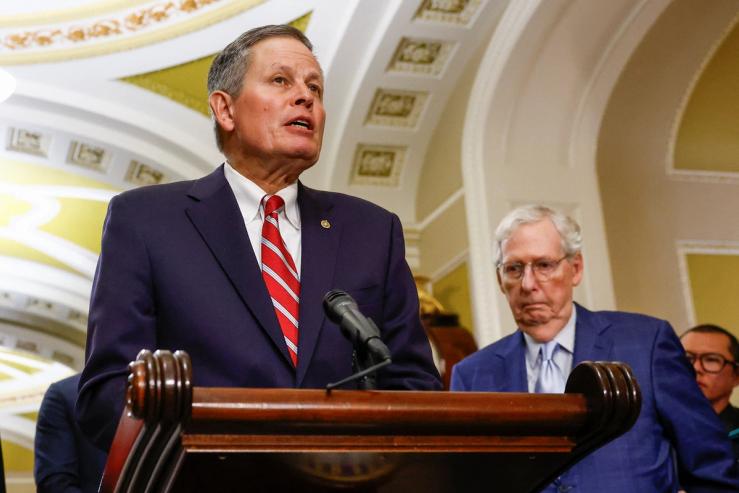The Scoop
Senate Republicans’ campaign arm raised a record-breaking $30.7 million in September, according to numbers first shared with Semafor.
It’s a sum that will help cash-strapped GOP candidates close the gap against Democratic rivals who are generally crushing them in fundraising. The National Republican Senatorial Committee has raised $231.1 million in total — also a record for this point in the campaign.
And boy, does the group need it.
“We will continue working hard to raise the resources necessary to bring back our incumbent senators and support our challengers, all of whom are facing unprecedented amounts of spending from Democrats,” NRSC spokesperson Mike Berg said in a statement. “As we’ve begun unloading our war chest, we are seeing positive movement across the board in competitive Senate races across the country.”
Senate Democratic candidates are keeping pace in the cash wars by starting to post whopping sums for the third quarter of the year. Ohio Sen. Sherrod Brown raised $30 million and Rep. Elissa Slotkin, D-Mich., brought in $18 million for her bid to claim an open Senate seat.
Both Brown and Slotkin’s numbers dwarf those publicly released by their Republican opponents, Ohio’s Bernie Moreno and former Rep. Mike Rogers, R-Mich. The NRSC raised $66.9 million for the entire third quarter.
The trend of Democratic fundraising dominance is likely to continue as more numbers roll in. Democrats currently hold a 51-49 Senate majority, with the GOP all but certain to pick up an open seat in West Virginia. The party is targeting Montana and Ohio, plus other races in Maryland, Pennsylvania, Wisconsin, Michigan, Nevada and Arizona.
Republicans only have a clear advantage in Montana at the moment, according to public polls, while Ohio is a toss-up and Democrats are generally leading in the other battlegrounds. Democrats are also making a play to defeat GOP Sens. Ted Cruz of Texas and Rick Scott of Florida, both of whom are currently favored to win reelection.
Know More
Given Republican candidates’ cash disadvantage, the national money from their campaign arm could prove vital. The NRSC shifted strategies this week, pulling down its planned independent expenditures in Nevada and Michigan in favor of so-called hybrid ads that split costs between the committee and its candidates, according to Politico. The group has no plans to pull out of either state.
GOP outside groups can help make up the fundraising gap, but they’re getting an abysmal return for their spending in some Senate battlegrounds even as they pour money into those races. That’s because candidates pay cheaper ad rates, but only if those candidates have money to spend.
And cash has been a big problem in most Senate races for Republicans.
The hybrid ads that stretch GOP money further now look to be the basis of the party’s October strategy. Democrats’ campaign arm responded to Republicans’ cancelled ads by mockingly emphasizing that they will “be continuing our advertising to voters across all channels and methods.” At the moment, Democrats are running independent expenditures and hybrid ads.
While Republican leaders would love to pick up as many Senate seats as they can, simply flipping the chamber by picking up two seats is the goal for Senate Minority Leader Mitch McConnell. He’s seen the party blow several winnable races in recent years.
“51 is the magic number. Because that’ll make my successor the guy who controls the agenda,” McConnell said in an interview last week. “We’ve got a good chance to get to 51. Anything after that’s great.”


